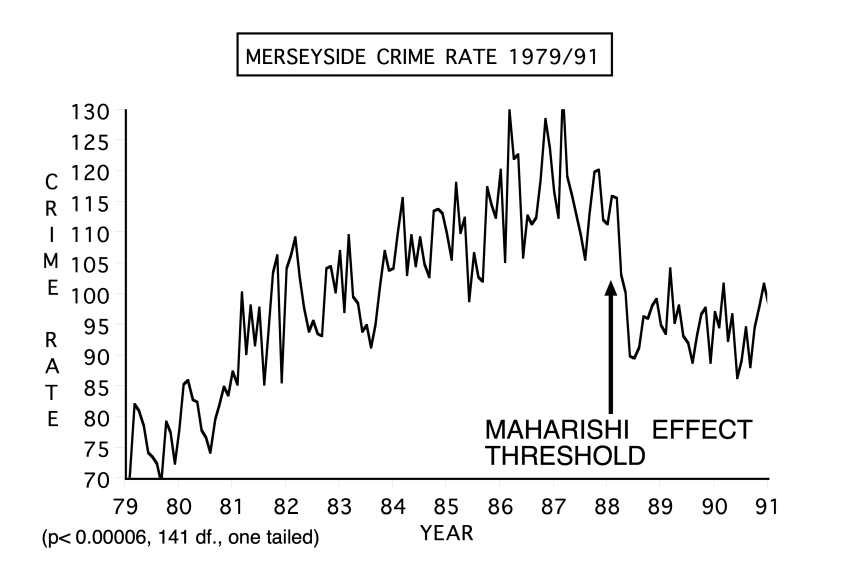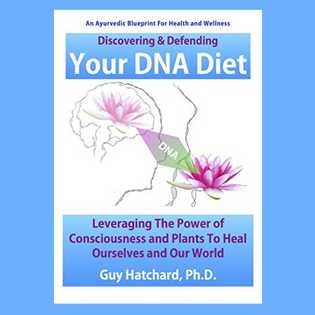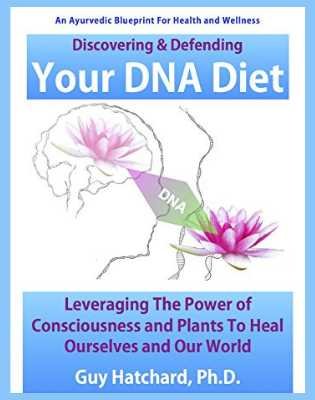There is little doubt that the world is in the process of transformation. Clearly a lot has to change.
All over the world significant numbers of people in every country are fed up with their governments and the institutions which have been guiding national life. This process accelerated during the pandemic as it became clear that a great deal was being hidden or distorted to facilitate public compliance. Now there is a process of public awakening slowly gaining momentum, but the actual course and final outcome of this restorative process remains hidden in the future, subject to uncertain events.
The pace of life and the density of information in every field of knowledge and endeavour has been accelerating exponentially. This has become so overwhelming that politicians and administrators everywhere have put up barriers to exclude broad-based information sources from their deliberations. Instead relying on their preferred advisors, economic principles, corporate lobbyists, political ideologies and crucially AI. As a result, the idea that the world can be transformed by presenting information to those in power has become a largely forlorn hope. We need new strategies.
To manage the explosion of information, technocrats are touting artificial intelligence, but computers are unaware, unable to experience in the way we do. They can only sample and summarise large amounts of information from the past. Therefore AI is destined to rehash all the failures of the past. Repeating the same mistakes that awakening populations are rejecting the world over.
Worse still, governments have started to use AI to distance themselves from public opinion. An article in Stuff is entitled “ACT leader David Seymour suggested ‘bots’ drove ‘fake submissions’ against his Regulatory Standards Bill“. Seymour was complaining because a public consultation received 23,000 submissions, 88% of which were opposed. Seymour has no evidence to support his accusation, he should have realised that, especially since the pandemic, the public is becoming more organised and alert to oppose government overreach. The really revealing part of the article is as follows: The Ministry for Regulation deputy chief executive of policy Andrew Royle admitted the ministry used AI to analyse the submissions received, saying:
“Its process included a “qualitative” analysis of about 1000 individual submissions. Group submissions and submissions over 10,000 words were read separately. The rest were summarised using AI.”
In other words, your submission to the government was very unlikely to be read by a human unless it exceeded 10,000 words, and this is just the beginning of the use of AI to control our lives and edit public narratives.
Even positive government initiatives like the MAHA movement led by Robert Kennedy Jr. are facing an uphill battle against entrenched ideas as the rest of the Trump administration pushes a pro-chemical, pro-corporate, pro-industrial agriculture agenda.
In parallel with this, our food sources and health systems are being edited and transformed through biotechnology experimentation and manufacturing. This is proceeding on a vast scale affecting the whole world’s population. It is happening not just without adequate safety testing, but despite evidence available to those controlling the process that gene editing is not just risky, but actually harming public health. Much of this is happening under the radar with the result that the public is not just uninformed, they are being misinformed and misled.
There are seeds of doubt emerging—Biotechnology is a ticking time bomb
Your local newspapers are probably not carrying articles like this one published May 27 by Barrons Investment Updates entitled “Gene Therapy Death Worsens Picture for an Already Troubled Field” which reports the death from treatment complications of a patient enrolled in a trial of gene therapy which was meant “to treat a rare genetic condition called Danon Disease, which weakens the heart muscle and generally kills male patients in early adulthood.” The trial has been suspended and the share price of the company involved, Rocket Pharmaceuticals of New Jersey, has fallen by 63%.
As the article explains, this is not an isolated case within the biotech industry. Another recent death occurred in March, when a patient on Sarepta Therapeutics’ Elevidys, an approved gene therapy for Duchenne muscular dystrophy, died of liver failure. The process of gene therapy alters genetic sequences which triggers an immune response designed to protect us by eliminating invasive foreign DNA. As a result, gene therapy recipients inevitably face a lifetime of immunosuppressant drugs which affect their health, limit their lifespan and require hugely expensive ongoing monitoring and treatment. Thus gene therapy has inherent contradictions. Not only will gene therapy never be able to fulfil its exaggerated promises, but it will have an open ended negative affect on public health outcomes, as happened during the pandemic
The Barrons article concluded, “gene therapies have become largely unattractive to investors, who are worried about unexpected safety risks and commercialisation challenges”. In fact, the procedures are so costly, not just in terms of money but also in terms of the required number of highly trained medical personnel and sophisticated equipment for each patient and the amount of procedural individualisation involved, that it is inconceivable for any health system to fund them. The article reports that as a result medical biotech companies are finding it hard to enrol patients.
However our politicians remain largely isolated from the harsh realities and risks of biotechnology. Instead, subject to lobbying from corporate interests and researchers dependent on government grants, they are deregulating biotechnology. If biotechnology experimentation is not stopped, inevitably within a short timescale there will be another outbreak of a novel man made illness that causes a precipitous decline in mental and physical health on a global scale.
The extraordinary refusal to acknowledge the dangers of biotechnology needs to be met head on. An article in the UK Telegraph entitled “It’s time for the truth. Here’s the Covid Paper they don’t want you to read” reports “Still the scientific establishment is refusing to take the lab leak hypothesis seriously, let alone investigate it.” It asks the scientific establishment: “There are over 20 million people dead, and you don’t want to know why?”
There are still chances for us to register our opinion on the Gene Technology Bill, for example by signing and sharing the “Petition of Lisa Er: Halt the Gene Technology Bill and set up a Commission of Inquiry.” It just takes a minute to sign, and we need more signatures. Go to:
https://petitions.parliament.nz/b64831bc-b0b2-4518-a62d-08dd708a9825
To have even more impact ask for a meeting with your local MP.
But some words of caution are needed here, we are not involved in a logical argument. There is an almost fanatical and certainly reckless mentality associated with biotechnology experimentation. The industry constantly projects false messianic messaging of a bright biotech future promising long life, health and enhanced abilities, but there is no evidence for this in fact the opposite and the people pumping out the message are well aware of the lie. There is a disregard for public preferences, scientific caution and medical outcome data. Therefore it would be a mistake to believe that a compromise is possible with the biotech industry. It should be clear that very little meaningful dialogue is taking place. To move out of this danger zone, we need to take big steps. Little steps, meaningless discussions, compromise and delay only play into the hands of the biotech industry and ultimately spell disaster.
We need a giant leap forward
Over the last few weeks we have been reflecting: “What more can we do?”What can our proposed Hill Station College of Natural Law offer to dispel the head in the sand attitude of governments, bypass the biotech corporate juggernaut and open the eyes of gaslit populations?
Despite all the turmoil and polarisation in society, the sun rises every day anew, the seasons revolve one into another and the business of natural law continues unabated. The managing power involved is beyond our comprehension. A simple analogy will explain this.
Every day we are eating food. To digest this, our physiology makes trillions of decisions for us every second of the day, it guides physiological transformations which turn our meals into bones, muscle, blood, brains, organs and everything else which sustains and facilitates our life. Doing so, it maintains the enormously complex structural integrity of trillions of physiological components. Even the design of an eye for example is beyond our capacity to completely understand, reproduce or redesign. Now let us suppose we receive a 1000 piece jigsaw for our birthday, it will take us days to complete. Our body achieves millions of times more than this every millisecond. Cosmic law scales this up to inconceivable levels of organisation.
Despite this, the body cannot function properly without the input of our consciousness. We must make the right food choices, rest and exercise in time, while behaving sensibly and considerately. Natural law is intimately tied to our consciousness. Consciousness is the key to our relationship with nature. Gaining the support of natural law involves managing our consciousness. Consciousness is the essence of life, but what facet of consciousness? Our thoughts, feelings, ideas or dreams?
The home of the laws of nature is abstract, not obviously seen or heard, rather silent but all powerful. Our connection with the laws of nature can be strengthened in the silent depths of our consciousness. Communion with nature is not found in the endless sea of information, but rather in the abstract WHOLENESS of our inner consciousness. Holistic consciousness is the fulcrum point around which everything is balanced.
Therefore the first principle of the College of Natural Law is research in consciousness. Throughout the ages this has been the aim of the practice of meditation. The practice of meditation has nourished all cultural, intellectual and religious traditions. If you are new to the idea of meditation, it is not hard to learn, and the rewards can be immense for the individual and very powerful for society.

The massive effect of meditation on society is reported in my paper published in Psychology, Crime, and Law, 2:3, 1996. The research was completed originally in 1993 and presented by invitation as a keynote speech to the Annual Conference of the British Psychological Society on Crime, 1-3 March 1993, Harrogate, UK. The study provided additional clear and powerful evidence that crime in any major city can be reduced within a few weeks by a group practicing meditation. The powerful Box-Jenkins ARIMA impact assessment time series analysis was used to test the hypothesis that Merseyside crime rate was significantly reduced after what is known as the Maharishi Effect threshold was surpassed by a group of 140 collectively practicing transcendental deep meditation and 12,000 others in the city practising at home. My book Your DNA Diet explains the details and more about the benefits of meditation.
My follow up study of quality of life in Merseyside in the years subsequent to 1988 illustrates a remarkable cascade of positive trends and initiatives engulfing everyday life in the city of 1.5 million people. The following effects illustrate the infinite organising power inherent in our own consciousness:
1) LOWEST CRIME
Crime decreased by 60% relative to national trends (p<0.00006). Merseyside used to have the second highest crime rate in the nation, but became the lowest among the Metropolitan areas by 1993.
2) REDUCED INSURANCE PREMIUMS
The Association of British Insurers announced that insurance premiums in Merseyside will fall due to falling crime rates
3) SHORTEST HOSPITAL WAITING LIST
By 1990 hospital waiting lists in the Merseyside Health Authority Region had fallen to the lowest in the UK, with numbers of people having to wait for vital operations 60% less than in the other UK regions.
4) FREEDOM FROM YOUTH RIOTS
There was an absence of riots among Merseyside youth in the early 90’s in contrast to the riots in other English cities (including Luton, London, Oxford, Salford, Cardiff, and Bristol)
5) IMPROVED DRUG TREATMENT PROGRAMMES
Merseyside became the world pioneer of the ‘harm reduction movement’ for the treatment of drug addiction and had the lowest rate of HIV positive among UK cities.
6) ECONOMIC REVIVAL
Formerly declining, Merseyside became a model of economic revival. The national press reported it as one of the first cities in the UK to show signs of an end to the 89/92 recession.
7) REDUCED UNEMPLOYMENT
Unemployment rates in Merseyside and West Lancashire improved steadily relative to national trends after 1988 with a cumulative 60% drop in hard core unemployment.
8) INCREASED EFFICIENCY AND PRODUCTIVITY
The UK Central Statistical Office rated Merseyside office staff as 20% more productive than their counterparts in London.
9) REDUCED STRIKES
Merseyside was once renowned for poor industrial relations, but by 1993 less than 1% of all working days lost in the UK were in Merseyside, despite the fact that almost 3% of the UK population live here.
10) PURIFICATION OF LOCAL GOVERNMENT
There was a complete purification and restructuring of the Liverpool City government which had previously been reported as one of the most extreme, inept, and corrupt among UK cities in the early 1980’s.
11) NEW BUILDING PROJECTS
Reconstruction and beautification of the inner city and the large old dock areas of the city got underway, which had been one of Britain’s worst slum areas in the late 1970’s.
12) IMPROVED HOUSING
Following years of decline in housing quality in the 70’s and early 80’s, the Liverpool Housing Action Trust became the largest in the country.
13) REVIVED ENTERTAINMENT AND TOURISM INDUSTRY
There was a revival in film production, theatre, and tourism which had been in serious decline in the late 70’s and early 80’s. Numbers of visitors to Merseyside were up by 53% to 29 million in 1990 compared to 1985.
14) SPORTING SUCCESS
Teams from the North West of England dominated in many sporting events in the early 1990’s.
15) BALANCED SEASONS & ADEQUATE RAINFALL
Merseyside escaped the droughts of 1988 to 1989. The North West was reported by the local press as the only area in the country to have adequate rainfall during this period.
16) INCREASED HARMONY & CO-OPERATION
A unique level of co-operation and harmony along with increased optimism and self-confidence was in evidence on Merseyside among public and private sector bodies. The Merseyside Partnership brought together over 40 organisations to promote progress in the region.
17) INCREASED HAPPINESS
A psychological study completed in the early 90’s at Liverpool University rated Merseyside pensioners as having 50% less depression than their counterparts in New York or London.
18) INCREASED ENVIRONMENTAL AWARENESS
In the first project of its kind in Europe, forty local organisations working together in the Estuary Project Group reduced the pollution load in the Mersey Estuary by 80%, enabling wildfowl numbers to increase by 60% and 35 species of fish to return.
19) HEALTHY LIFESTYLE
A unique experiment in the Wirral (a suburb of Merseyside) was described in the national press as ‘a rare piece of co-operation in the public sector’. Under the ‘Life Project’ initiative, inner city residents took more exercise, reduced use of prescription drugs, stopped smoking, cut back on drink, and changed their diet.
20) QUALITY OF LIFE
There were many articles in the local and national press analysing why all this optimism and positivity suddenly grew up in Merseyside. An article in the Daily Mail summed it up with the headline “Merseyside is my Heaven on Earth”, in the Daily Telegraph “A Good Place With Good People>” (June 13, 1995 p. 15), while an industrial development promotional advertisement in the Times of London (13 November 1991) trumpeted “Success After Success On Merseyside”.
Consciousness is at the centre of the Cosmos. This is an eternal verity found in every cultural and religious tradition. Christ said “the Kingdom of Heaven is within”. Krishna advised “Brahman [wholeness of consciousness] brings eternal freedom”. Buddha said, “Peace comes within, do not seek it without”.
Sufi’s say, “Meditation in God is my capital”.Einstein said “Man has infinite dimensions and finds God in his conscience.” Ralph Waldo Emerson said “Trust thyself: every heart vibrates to that iron string.” Seneca said“It is the power of the mind to be unconquerable. ”Marcus Aurelius said “You have power over your mind – not outside events. Realise this, and you will find strength.””
Despite this wisdom of the ages, the institutions of modern civilization (if that is the right term) have forgotten their founding principles. A great leap forward will result when research in consciousness becomes a priority in education. We are talking here about individual research in consciousness in the silent depths of self referral consciousness.






